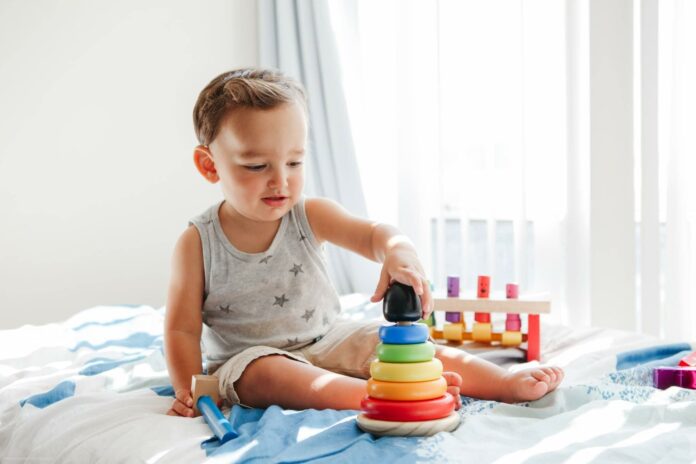The first few years of a child’s life are especially important for their minds. The environment of their first few years can have a huge influence on how they shape much of who they are as a person, throughout their childhood, and into adulthood. While you certainly don’t need to be a neurological expert in order to raise children well, knowing about the brain’s early neurological development can help ensure that your little one’s mind gets the best possible start in life.
- Start at the dinner table
All parents know how important of a role nutrition plays in a child’s physical development, but you would be surprised at just how important it is for neurological development, as well. For example, children who have a diet that is lacking in iron have been shown to have considerable cognitive delays throughout their childhood. In a child’s first few years they also require a considerable amount of fat to sustain their constantly growing and developing brain, which consumes healthy fats to function.
- Take care of yourself
While babies may seem oblivious to most of what’s happening around them, the truth is that they are actually deeply perceptive and insightful. They’d have to be in order to absorb so much information about the social and physical world! Babies and toddlers can tell when their caregiver is stress or upset. Constantly being cared for by those who are tired, frustrated, or uncommunicative can take a toll on their development. So for the sake of your baby, give yourself a break! It will do you both a world of good.
- Lay off the discipline
Many parents, eager to get off on the right foot, will start praising and punishing their baby from the moment they come home from the hospital. The trust is that while babies are extremely bright and insightful, they still aren’t developmentally ready to understand when they are being praised or punished or to understand the causal relationship of their praise or punishment. If your small infant is getting into something they shouldn’t, redirect them instead to something less dangerous. Hold off on the discipline until they’re out of their toddler phase, have better receptive language skills, and can understand boundaries a bit better.
- Keep on the talk
While your baby might be too small to speak or even understand many words, talking to them throughout the day is still a critical activity. After all, without plenty of exposure to spoken language, how can we possibly expect them to learn it! As you spend time with your child, explain to them what you’re doing, talk about your daily, discuss what activities they’re doing, or just talk about the weather. It will be the most beneficial for them to talk in small words about the parts of their environment they are most engaged with, but any conversation will be a benefit to them. Make sure you’re reading with them daily, even if it’s just a short story or two before bed. Just saying anything at all will be a big help to that growing noggin!
- Resilience comes from trust
As the goal of a parent is always to help their child grow into a healthy, capable adult, teaching resilience and self-sufficiency is a top priority for many parents. However, many assume the best way to teach resilience is to refuse to help their young child and instead leave them to solve problems independently. However, this can feel like abandonment to a young child who isn’t capable of solving these problems yet, and having that experience consistently can make children feel insecure and lose their confidence. Helping your child and gradually encouraging their independence will result in these self-sufficiency skills arising more slowly, but will come with a sense of self-confidence and trust in their environment and caregivers.
- Follow their lead
Many new parents, eager to motivate their child to learn, will plan a variety of educational activities for their child to participate in. They’ll sit their small toddlers down in front of flashcards, worksheets, or puzzles and try to force their children to participate. However, this isn’t very beneficial for your child, as well-intentioned as it might be. Learning is best achieved when children are relaxed, engaged, and happy. In short, when they’re playing! The best way for your child to learn and develop is to follow their own interests and pursue what sparks their curiosity. To ensure your child’s learning as best they can, provide them with a play environment that’s rich in engaging toys and materials, then let them do what they will. If they’re not interested in the puzzles or the flashcards, remember that even seemingly frivolous toys like dolls and paints are still offering them plenty of educational opportunities.
When you keep the needs of your child’s brain in mind, you can help them get the best possible start to their bright young life. Simply making a few changes to your parenting now can help them grow and thrive mentally and physically and prepare them for a happy, healthy life!

